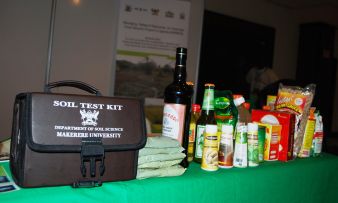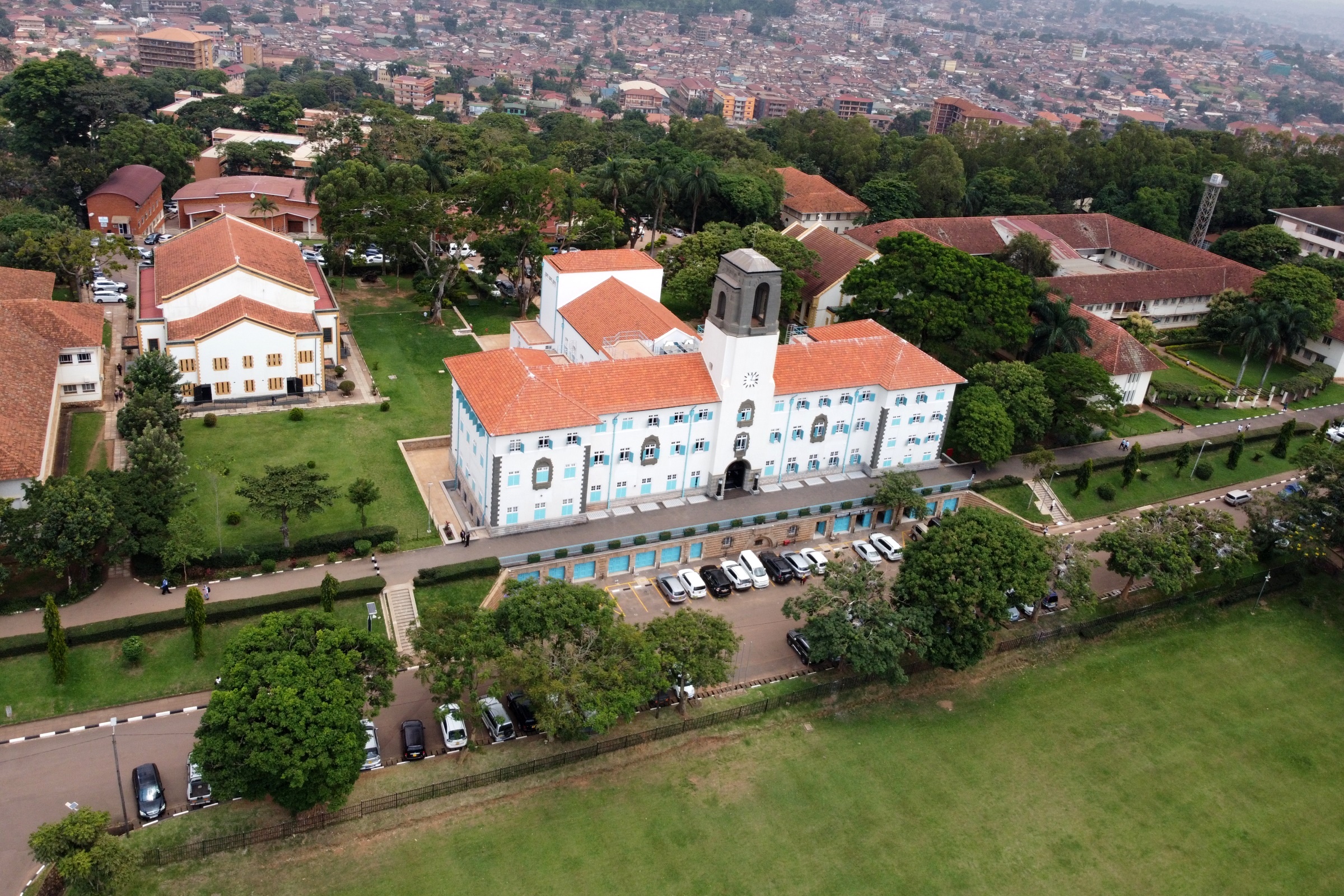The 6th Africa Agriculture Science Week (AASW) has opened in the Ghanaian capital, Accra.
The week-long gathering is organized by the Forum for Agricultural Research in Africa (FARA) in collaboration with the Government of Ghana through the Ministry of Environment, Science, Technology and Innovation (MESTI) and the Ministry of Food and Agriculture (MoFA).
The Agriculture Science Week is the continental gathering of all stakeholders in African agriculture aimed at creating an open space for networking and exchanging information and knowledge on agricultural innovations and on topical issues with a bearing on agricultural research and development.
This meeting is convened every three years and this year’s gathering is running under the theme; “Africa feeding Africa through Science and Innovations."
Opening the conference Monday morning at the Accra International Conference Center, the Chairman of the FARA Board Dr. Tiemoko Yo observed that food and nutrition insecurity remain cardinal problems especially in Africa. Dr. Tiemoko challenged Africans to stump out hunger from the continent saying that Africa has a great potential to feed itself given that 60% of its arable land remains un-utilized and the remaining 40% bears crops with low yields.
The Ghanaian Minister of Food & Agriculture, Clement Kofi Humado challenged African universities to come up with home- grown food security innovations for their countries.
The outgoing FARA Executive Director, Prof Monty Jones said, “there is no better country to host this kind of meeting than Ghana, one of the few African countries that have succeeded in turning around its economy, cutting down hunger thereby remaining on track to achieving the 1st Millennium Development Goal of halving hunger and poverty by 2015”.
Makerere University, one of the four African universities exhibiting at the event is represented by the College of Agricultural and Environmental Sciences (CAES) and the College of Veterinary Medicine, Animal Resources and Biosecurity (CoVAB). The two colleges are showcasing their research innovations in agriculture and animal sectors.
Participants visiting the Makerere University stall are impressed by the innovations, technologies and products that are being showcased at the exhibition. They have however expressed concern as to why the products are not available for sale.
CAES is showcasing her latest innovations and technologies including the Makerere Bio-fertilizer which fixes nitrogen in the soil, the Soil Testing Kit used for semi quantitative evaluation of five nutrient investigative parameters namely soil Ph, potassium, nitrogen, organic matter and Phosphurus.
Others are the new sweet sorghum variety (MUK60), which is drought tolerant, for the production of food and bio fuels, four varieties of Mak Soya, which are resistant to leaf rust disease, early maturing and high yielding.
The College is also exhibiting the Milk Booster, the Calf Accelerator and the Briquettes made from industrial and agricultural wastes. The Indigenous Micro Organisms (IMO) used in organic farming is also on display.
A variety of items from the Food Technology and Business and Incubation Centre (FTBIC) have also attracted conference participants to the Makerere University booth. These include the preserved grass hoppers (Nsenene), Bean sauce, Mc peas, Amaranth flour, Smile bean sauce, Canned Kantunkuma, Campus pineapple, Tea Mujaja, Mudalasini, Ginger, Gooseberry Jam, Omulondo liquer, Ajon (improved Malwa), Dawn juice, Goose berry juice, Nutreal cookies, and Pinnacle Banana Juice among others.
The College of Veterinary Medicine, Animal Resources and Biosecurity (CoVAB) is showcasing her skills development and employment programs offered through the AFRISA partnership institute. The programs involve value addition to animal products and are essential for job creation especially among the youth. Shoes and belts made by Students of Leather Industry and Business; one of the 11 skills development program are also being showcased.
A number of Makerere University dons including Prof. Samuel Kyamanywa, CAES, CoVAB’s Principal Prof. John David Kabasa, Veteran Professor Elly Sabiiti, Prof. Moses Tenywa Makoma and Dr. Donald Kugonza among others are participating in different forums. Also present is a team from RUFORUM led by the Executive Director, Prof. Adipala Ekwamu. They have so far participated in discussions on reforming curricular in higher agricultural education in Africa, climate smart villages in Africa: opportunities for farmers and communities, capacity strengthening for agricultural innovations among others.
Another team led by Makerere University Branding and Marketing Manager Agaba Issa Mugabo includes CAES and CoVAB’s Communication officers strategically positioned in the Makerere stall showcasing the latest technologies and innovations.
Other universities are University of Nairobi, Jomo Kenyatta University (Kenya) and Lilongwe University of Agriculture and Natural Resources (Malawi).
The science week has been internationally recognized as the apex gathering of all stakeholders in African agricultural research and development. It has attracted key decision makers in governments within and outside Africa such as Ministers, Parliamentarians, key players in the private sector, leaders of civil society and farmers’ organizations, women groups and leaders in agricultural research and development.
This milestone event is taking place from 15th-20th July 2013 and will be officially opened by the President of the Republic of Ghana, H.E John Dramani Mahama on Thursday July 18, 2013.
Story By:
Agaba Issa Mugabo, Jane Anyango and Jovia Musubika Kavulu

 General2 weeks ago
General2 weeks ago
 General2 weeks ago
General2 weeks ago
 General5 days ago
General5 days ago
 Natural Sciences6 days ago
Natural Sciences6 days ago
 Health7 days ago
Health7 days ago



